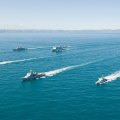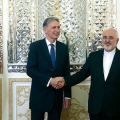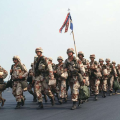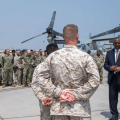US Military Escalation in the Middle East Amid Rising Iranian Threats
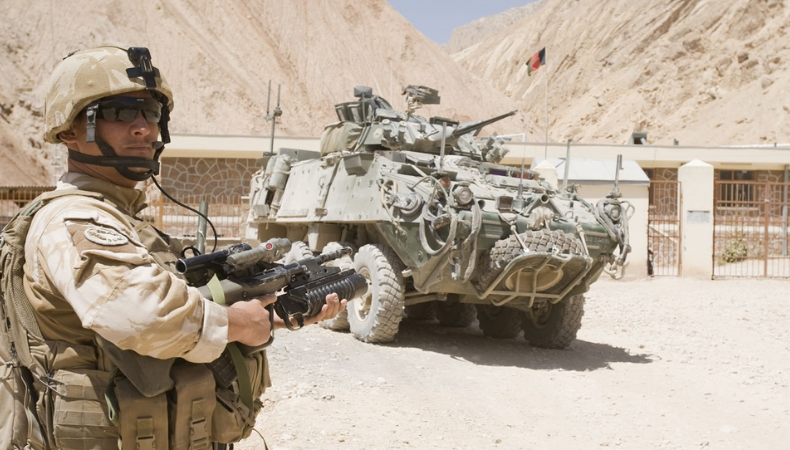
As hostilities in the Middle East grow, the United States has moved forcefully putting additional strategic military assets there. Iran’s threats directed at Israel point to an apparently explosive future, and this development results from This editorial investigates the motivations behind these acts, the specific powers of the sent-inactive assets, and the larger effects for regional stability and world diplomacy.
Strategic Military Disbursement
Apart from hastening the path of the USS Abraham Lincoln aircraft carrier toward the Middle East, the U.S. Department of Defense has announced the deployment of the nuclear-powered submarine USS Georgia armed with around 150 Tomahawks. Clearly, these acts are in reaction to the recent death of Hamas leader Ismail Haniyeh in Tehran, an event that has seriously increased hostilities between Iran and Israel. The U.S. actions demonstrate Iran’s unshakeable commitment to Israel’s protection and aim to deter more hostilities by Iran.
Allegations and Death
With Iran and Hamas accusing Israel of the murder, the death of Ismail Haniyeh has taken front stage in causing strife. Although Israeli officials have not discussed their involvement, the results are clear: this occurrence raises the possibility of reprisals and maybe military action in the vicinity. This makes the American response preemptive, aimed to offset any immediate threats from Iran or its allies, including Hezbollah.
Capability of the USS Georgia
Representing a potent mix of assault and special operations capability, the USS Georgia is a foundation of U.S. naval capacity. Originally intended for long-range accurate assaults on land and sea targets, the 154 Tomahawk cruise missiles an Ohio-class submarine can carry With up to 66 special operations personnel, the Georgia can also offer a versatile site for clandestine activities. This deployment guarantees fast response capacity to meet any changes since it highlights how successfully the United States can project strength and influence over great distances.
Historical Background and Strategic Guidelines
The U.S. Navy has historically used strategic deployments to highlight its might and maintain stability in key locations. Previous transits of the Suez Canal by the USS Florida, a sister ship of Georgia, help to illustrate this strategy. Such actions are aimed to reassure friends and deter possible foes by stressing the military strength and will of the United States. Just leaving Guam and partnered with the Italian Cavour carrier strike group, the USS Abraham Lincoln is expediting deployment to demonstrate a coordinated effort with international allies tackling the challenges presented by the evolving Middle Eastern security environment.
Keep On Reading
Juggining Diplomacy and Authority
While the stronger U.S. military presence is a great deterrent, it also results in natural hazards of more escalation. In this volatile and complex environment between displaying military strength and using diplomatic routes, a careful balance must be done. Although the United States and its allies have to be vigilant, ready to de-escalate tensions by means of communication and discussions, they still have the capacity to react decisively to any hazards.
Final Thought: Bargaining Across a Complicated Geographic Scene
The current situation of the Middle East demands a varied approach combining diplomatic charm with military readiness. The United States’s deliberate deployment of the USS Georgia and the USS Abraham Lincoln emphasizes its will to protect not only its but also those of its allies’ interests. Still, the route to long-lasting peace and security in the region will depend on the ability of all the involved parties to have meaningful conversation and address the fundamental causes of conflict. As it negotiates this challenging geopolitical terrain to contribute to establish a more stable and affluent Middle East, the United States must remain advocating de-escalation and cooperation.

